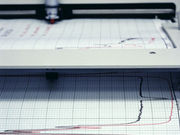But more research is needed before this can used as a marker, researcher says
MONDAY, Nov. 23, 2015 (HealthDay News) — A higher resting heart rate may indicate higher risk of premature mortality, researchers suggest. The report was published online Nov. 23 in CMAJ, the journal of the Canadian Medical Association.
Dongfeng Zhang, M.D., of the department of epidemiology at the Medical College of Qingdao University in Shandong, China, and colleagues analyzed 46 studies involving more than two million patients. The studies reviewed looked at all-cause deaths and deaths from cardiovascular disease.
The researchers found that, compared to people with the lowest resting heart rate, those with a resting heart rate of more than 80 beats a minute had a 45 percent greater risk of death from any cause, while people with a resting heart rate of 60 to 80 beats a minute had a 21 percent greater risk. For every 10-beats-a-minute increase in resting heart rate, risk of dying from any cause rose 9 percent, and risk of dying from cardiovascular disease increased 8 percent. Compared with 45 beats a minute, the risk of death from any case increased linearly with increasing resting heart rate.
However, Zhang told HealthDay that the absolute risk is small — that is, the odds of any one person dying from a rapid resting heart rate are low. Also, the study doesn’t prove that heart rate actually caused premature deaths; it merely finds an association between the two. “However, people should pay more attention to their resting heart rate,” Zhang said. “These results also indicate the importance of regular physical activity that could lower resting heart rate.”
Copyright © 2015 HealthDay. All rights reserved.








